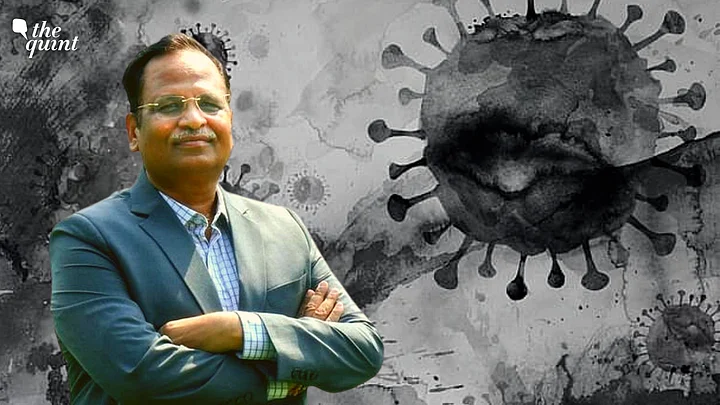Delhi is expected to hit the peak of COVID-19 infections "definitely this week," Delhi Health Minister Satyendar Jain told NDTV. The minister also said that the infections in the third wave might start dipping shortly after the peak.
On 10 January, Delhi reported more than 19,000 fresh cases.
"The peak has already arrived or will come in a day or two. It (peak) will happen this week definitely. Cases should start falling after that. But it's possible we may enforce another curfew, just to remind people not to lower their guard," Jain said.
One in four people is testing positive for COVID-19 in the national capital. The positivity rate in Delhi stood at 25 percent on 10 January, the highest since May 5 last year.
The city also reported at least 17 deaths due to the infection.
"A good sign is that hospitalisation is very low. Despite seeing around 20,000 daily cases, hospital occupancy is only 2,000 beds, while 12,000 beds for COVID-19 patients are unoccupied. In the last wave, when the city was seeing 20,000 cases a day, at least 12,000-13,000 beds were occupied," Jain said.
Delhi has logged more COVID-related fatalities in the first 10 days of this month than the total deaths in the last five months. Most of those who died had comorbidities and were not vaccinated, government data reveals.
A study based on the government-backed Sutra model suggests that Delhi city may see a peak around mid-January and with daily cases of 50,000 to 60,000 and 30,000 odd infections (seven-day average).
The model also says that the number of cases would dip quickly when cases rise sharply across the country and also in cities when the respective peaks are reached.
In view of the rapid spike of COVID-19 cases in the national capital, Delhi Disaster Management Authority (DDMA) issued revised guidelines on Tuesday, 11 January, asking private offices to shift to Work From Home (WFH) mode.
All private offices in Delhi will be closed and are to practice work from home, except for those falling under the exempted category.
Till now, these offices were running at 50 percent capacity.
On 10 January, the Delhi government had announced that restaurants and bars will remain shut for dine-in services in the national capital amid a spike in infections.
On 11 January, Professor Manindra Agarwal from the Indian Institute of Technology-Kanpur (IIT-K) said that big cities like Delhi, Mumbai, and Kolkata were barely a week away from the peak of the third wave of coronavirus pandemic.
He also suggested prevention and vaccination as the only reliable weapons against the virus.
As COVID-19 cases surge, India began administering the third 'precautionary dose' to priority groups – health care and frontline workers and those aged over 60 years with comorbidities – on 10 January.
According to the government's directions, the third dose will be of the same vaccine as the first two jabs and will be given to those who were vaccinated nine months ago.
A preliminary analysis by IIT Madras has predicted the COVID-19 surge to peak between 1-15 February. As per the analysis, India’s R-naught value, which indicates how fast the virus is spreading, was recorded at 4 this week.
If this value dips below 1, the pandemic is considered over. As per the IIT Madras study, the R0 value was close to 2.9 nationwide in the week starting 25 December.
The Assistant Professor of the Department of Mathematics in IIT Madras, Dr Jayant Jha, said that the peak in the current wave is expected to come between 1-15 February and it is expected to be sharper than earlier peaks.
(With inputs from NDTV.)
(At The Quint, we question everything. Play an active role in shaping our journalism by becoming a member today.)
